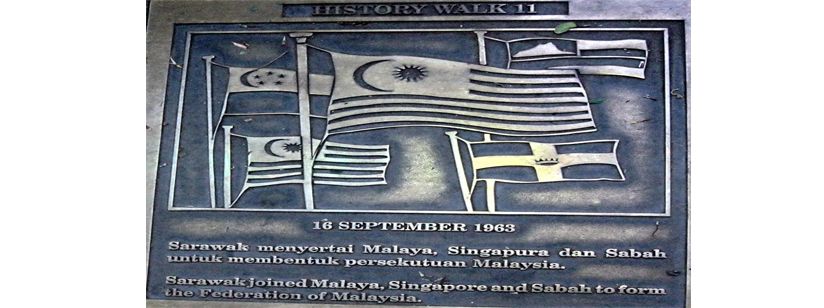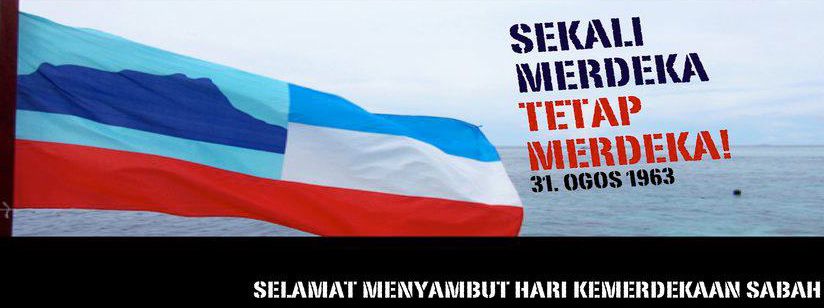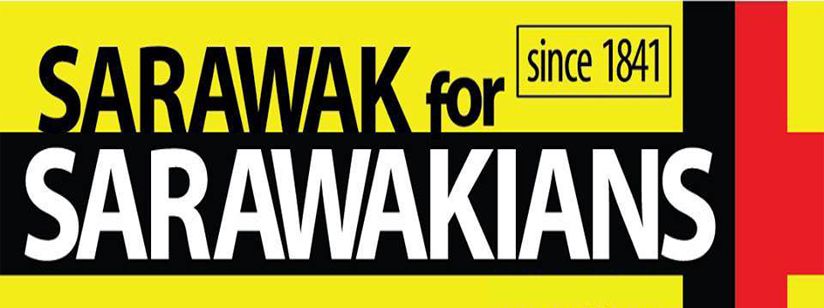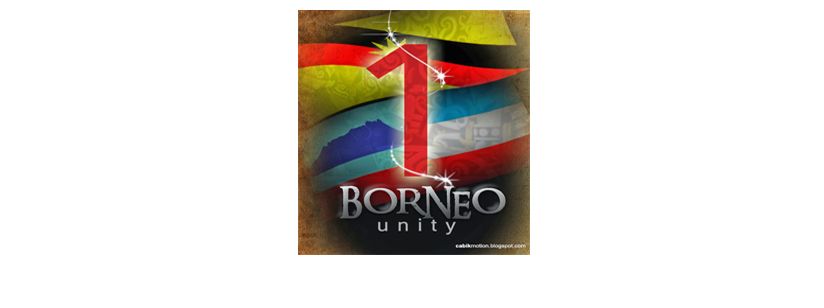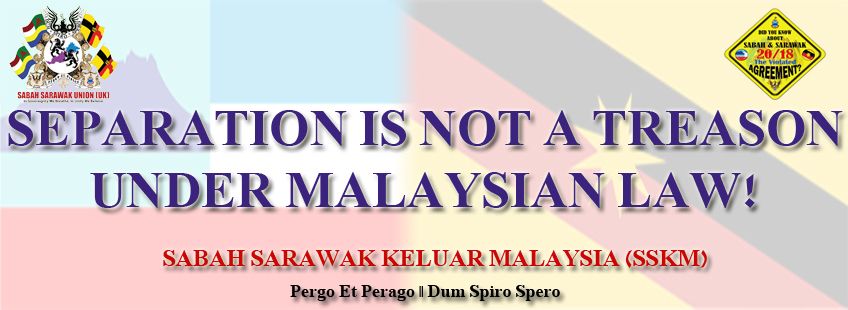Wednesday, 31 August 2016
“Respect and Honour Sabah's Independence on 31st August - Dr. Jeffrey”
PRESS STATEMENT
Tuesday, 30 August 2016
Kota Kinabalu: “The Federal government and Malayan leaders should respect Sabah’s Independence on 31st August 1963 in the same way we, Borenons, respect Malaya’s Independence 59 years ago but not Malaysian Independence as there is no such thing as “Malaysian Independence”. They should also not force Borneons to accept Malaya’s independence as Malaysia’s independence” said Datuk Dr. Jeffrey Kitingan, Bingkor Assembly in urging Sabahans and the Sabah government to honour and commemorate Sabah’s independence on 31st August.
History must be put factually in the correct perspective so that there is no confusion. Historical facts should be stated factually and there is no need to twist and turn the truth to suit any party.
It is a fact that the people of Sabah, through their Founding Fathers, demanded independence and be freed from colonialism as a prerequisite to accepting the Malaysia proposal.
It is also a fact that the North Borneo Legislative Council passed a unanimous resolution on 8th August 1963 to proceed to declare Sabah’s Independence on the 31st of August 1963 irrespective of Malaysia coming into being or not on that date. This imply that Sabah’s independence did not depend on Malaysia and certainly not through Malaysia which may have been the original intent of some.
It is also a fact that Sabah and the people of Sabah celebrated Sabah’s Independence called the “Sabah Day” on 31 August 1963.
Although, Sabah’s independence was for internal self-government at that point in time and without the powers of external defence and international affairs (still with the British), the meaning was the same as far as Sabahans were concerned. This was reflected in Sir William Goode, the last British Governor, statement on 31 August 1963:
..."Today is a historic day for Sabah. It marks the beginning of self-government and independence and the end of colonialism ..."
We must also not forget what Tunku Abdul Rahman said and assured Sabahans that Sabah would have “absolute independence in Malaysia” and “equal in status to Malaya, Sarawak and Singapore”.
It is high time for the Federal and Sabah governments to put things right. Malaya, Sabah and Sarawak are equal partners in the formation of the Federation of Malaysia and the Borneo States are not subservient to Malaya.
In particular, the Sabah government should honour and celebrate Sabah’s Independence every year to mark the historic day. It should also be declared a Sabah public holiday to mark its importance like what the Sarawak government has done this year to mark Sarawak Day on 22 July as its Independence Day.
Sabah and Sarawak should also consider becoming members of the British Commonwealth. In the sporting world, they should get direct affiliation to world sporting bodies like FIFA to participate in the World Cup and the IOC for the Olympics. If Scotland, Wales and Northern Ireland in the United Kingdom can enjoy the same status, there is no reason why Sabah and Sarawak cannot enjoy a similar status.
Datuk Dr. Jeffrey Kitingan
S4S says don’t confuse Merdeka Day with Malaysia Day
Only Sept 16 can qualify as National Day, as Malaysia did not exist on Aug 31, says Sarawak 4 Sarawakians.
KUCHING: Sarawak 4 Sarawakians (S4S) wants to know why Malaya’s Merdeka continues to be portrayed as the primary celebration even in Sarawak.
It cautioned against passing off Malaya’s Merdeka Day on Aug 31 as National Day for Malaysia.
“Only Sept 16 can qualify as National Day. Malaysia did not exist on Aug 31,” its chairman, Peter John Jaban, said.
Jaban said in a statement: “The Jalur Gemilang of Malaysia must not be used to celebrate Malaya’s Merdeka on Aug 31. The Jalur Gemilang is for Malaysia Day on Sept 16.”
Aug 31, he said, had no significance for the people of Sarawak, adding: “Our history must not be based on collective amnesia.”
S4S wants an end to the misinformation on Aug 31 and its place in history.
Jaban said: “There must be greater prominence nationwide on Sept 16 or 916.
“There must be an accurate portrayal of the history of the nation in schools. Malaysia, born on 16 September 1963, is not 59 years old as the signs at airports and everywhere else claim.”
Ever since Sept 16 was declared a public holiday after nearly five decades had passed, the centre of celebrations had always alternated between Sabah and Sarawak, noted Jaban.
“Do the authorities in Kuala Lumpur have something to hide? Why isn’t Malaysia Day hosted in Malaya?”
In fact, he added in a little digression, Aug 31 is the day Malaya joined the Commonwealth of Nations. “Malaya became independent on July 31 when the UK Parliament passed the Independence of Malaya Act 1957.”
He hastened to add, however, that the people of Sabah and Sarawak would be happy to celebrate Malaya’s Merdeka.
In return, he called for the people on the other side of the South China Sea to celebrate Sarawak’s Independence Day on July 22 and Sabah’s Independence Day on Aug 31.
“They should also agree to host Malaysia Day, 916, in rotation with the two Borneo nations,” said Jaban.
Source: Free Malaysia Today
Nadira Ilana of Sabah's view of the formation of Malaysia
I'm suppose to be preparing my artist talk but i got distracted by FB and saw this great summary post by Nadira Ilana of Sabah's view of the formation of Malaysia. It is so worth sharing. I have a couple of things to add which will be at the end of this post by Nadira..
"When Tunku Abdul Rahman came to North Borneo in 1961, he was surprised to find that there were no Malays and didn't know how to talk to the natives. At first the Malaysia proposal was rejected but the urban Dusuns later supported it, causing a split that formed the splinter between Kadazans and Dusuns.
Lee Kuan Yew was critical in convincing the natives to join Malaysia. The 20 Point Agreement was formed following the Cobbold Commission because the North Borneans were worried that the Malayans who were better educated, racially segregated and pro-Melayu would convert us into Islam, take our government jobs and replace the British as our colonisers.
Malaysia was formed under the pretence of an equal partnership between Malaya, North Borneo, Sarawak and Singapore. Today, Sabah Sarawak are considered 'states' and many peninsular Malaysians still can't tell the two apart though if not for Sabah Sarawak, there would be no Malaysia.
Coming from a pagan culture that believed in oath stones, the 20 Point Agreement in the modern world, proved to be ineffective as it was merely a gentleman's agreement with no locus standi. A majority of the promises for goodwill between Malaya and North Borneo would soon be broken.
16 September 1963, Donald Stephens chanted Merdeka at Padang Merdeka four times. Three times less than Tunku Abdul Rahman. Malaysia Day would have fallen on 31 August if not for protest from Indonesia and the Philippines.
In December 1964, barely two years after his appointment, Donald Stephens was removed as Chief Minister of Sabah for wanting to review the Malaysian Agreement because Singapore was being asked to leave. Sabah's founding father and first Huguan Siou was unceremoniously replaced with Datuk Peter Lo and he was later appointed as the Federal Minister of Sabah Affairs.
1967 saw the reign of USNO and the introduction of the most controversial figure in Sabah history yet. Tun Mustapha bin Harun was a Bajau-Suluk politician who had risen with Donald Stephens during the Merdeka talks. Transitioning from British colonisation into modern politics, he had initially accepted the TYT Governor role instead of Chief Minister because he thought that it would be more powerful.
Tun Mustapha was well liked by the federal government because he was a Muslim and they saw him as their brethren who could represent Sabah despite Muslims being a minority of 38% at the time. The Dusuns then, who were mostly Christian spoke a different language and were seen as too difficult to manipulate by the Malays.
The USNO era was harrowing for the indigenous majority of Sabah. Kadazan vernacular schools were denied. Bahasa Melayu was taught in schools instead and for a time, indigenous languages were banned from the radio. Mass Islamisation took place among the illiterate natives and some 75,000 were converted. Priests were extradited and in Tambunan, some were hidden in the jungles by villagers. Non-Muslims were being discriminated against.
In 1976, despite point 1 of the 20 Point Agreement, Sabah's official religion became Islam. We were meant to be a secular state.
The federal government went on to use Tun Mustapha's Bajau-Suluk connections to foster relations with the Moros and when the civil dispute between Mindanao and the Philippines erupted over the Moros' refusal to attack and conquer Sabah, Tunku Abdul Rahman had plans to take Mindanao as a Malaysian territory as they were Muslim as well. From the support from the Malaysian government came the birth of the Moro National Liberation Front and Sabah opened its doors for the first time to tens and thousands of Sulu refugees in the 70s.
Lavish spending and a playboy lifestyle nearly led to the bankruptcy of Sabah. The federal government was becoming increasingly impatient with Tun Mustapha and engineered his removal through Harris Salleh with the first Barisan Nasional government in Sabah, Berjaya.
Harris approached Donald Stephens who had converted and was now TYT Governor Tun Fuad Stephens, to step down and run as Chief Minister. The federal government was pushing for the Petroleum Agreement, which Tun Mustapha had refused and Tun Fuad was not about to budge either.
Berjaya succeeded and Tun Fuad Stephens was reinstated as Chief Minister in April 1976. 53 days later, 6 June 1976, he died in an incident that Sabahans remember as the Double Six Tragedy, killing 11 of Sabah's illustrious leaders. 14 June, the Petroleum Development Act 1976 was signed by his successor, Harris Salleh, surrendering 95% of Sabah's oil royalties. Labuan, Harris' birthplace was given away as a federal territory for free.
That's the story of Sabah's Bapa Merdeka and Malaya's Bapa Merdeka's contributions to Sabah and we all lived happily ever after. Amin."
My comments:
For Peninsula Malaysians who are sincere in understanding the formation of Malaysia and the troubled relationship East Malaysia has with the West, see James Ongkili's book "The Borneo Response to Malaysia:1961-1963" published in 1967. James Ongkili is Maximus Ongkili's big brother. Max Ongkili is currently the Federal Minister for Energy, Green Tech and Water.
This book helps explain much of the thinking of the times in Borneo. It also illuminates why Brunei decided to pull out of Malaysia. Essentially they found Tunku Abdul Rahman and his staff incredibly rude and condescending and immediately saw the problems related to Malay superioity complex and projected that they would be marginalized in a partnership with Malaya. Tunku Abdul Rahman, the great hero of Malaya was not at all popular in Borneo and was considered very arrogant. It was Lee Kuan Yew who won over the Borneans.
Look into the expulsion of Singapore. Although Sabah and Sarawak believed they were equal partners with Malaya and Singapore as a territorial signatory to the formation of Malaysia, the expulsion of Singapore was done completely in secret between Malaya and Singapore and Sabah and Sarawak were not informed of any of this. Lee Kuan Yew made a public radio address in the morning of August 9th 1965 that Singapore would be pulling out of the Malaysia Agreement. The Parliamentary sitting was later that day - AFTER this radio announcement which pre-empted the emergency parliamentary sitting - held in Kuala Lumpur. It was already a done deal. Sabah and Sarawak were not privy to any of it.
After the expulsion of Singapore. Sabah and Sarawak both wanted to pull out of Malaysia as well. Look into the history of poor ol' Stephen Kalong Ningkan the first chief minister of Sarawak. UMNO exerted its federal powers through their influence in Sarawak and Stephen Kalong Ningkan was removed from power despite being democratically elected by Sarawakian people. The expulsion of Singapore on 9th August 1965 was the beginning of the disenfranchisement of Sabah and Sarawak politics and the disregard of the Malaysia Agreement 1963.
It is this 1963 Malaysia Agreement that is in contention now. Sarawakians especially want the country to be re-aligned back to the agreements made on the formation of Malaysia. They just want what was agreed to - when they gave up dreams of their independence for this new country called Malaysia. Current news regards Petronas in Sarawak is related to this and for Borneoisation which was part of the original Malaysia Agreement.
The ignorance coming from KL to this day can make me feel ill.
Dont be an ignorant arse, learn Bornean political history.
None of this will ever 'go away'. Malaysia will be an unsettled country till all this is addressed. 'Merdeka' almost seems juvenile a shout when you understands the actualities of this country.
Ok i gotta go, got work to do.
Source: Verolian Intah Saganti Sutar
Stop celebrating ‘Hari Merdeka Malaysia’
In August every year, the date Malaysia became ‘Merdeka’ will become a debating point. It bothers many as well, when the term ‘Hari Kemerdekaan’ is used to signify Malaysia’s independence.
Some say Aug 31 is the Independence Day, while others argue that it should be Sept 16.
For the record, whether it is Aug 31 or Sept 16, it is factually and historically wrong to say “Malaysia gained independence”.
You cannot receive independence if you were never colonised. And since Malaysia was never colonised, it is impossible for Malaysia to “receive independence”.
Malaysia was never colonised, it was born as a new federation formed by three entities after these three entities received independence separately.
The entities that received independence were Malaya (Aug 31,1957), Sarawak (July 22, 1963) and Sabah (Aug 31, 1963).
Countries like the Philippines or Indonesia who are a single entity have their independence day because when the Spanish and Dutch arrived, they ruled the country as a single entity. When they left, the country remained as it is, until today. There were no changes or mergers with other entities. Philippines is still Philippines and Indonesia remains as Indonesia.
The British meanwhile, did not colonise Malaysia. They colonised Malaya, they colonised Sarawak and they colonised Sabah, separately. And only after these three entities received independence separately, they came together to form Malaysia.
To understand Malaysia in a different perspective, think of Malaysia as the United Kingdom (UK).
UK only happened after sovereign nations namely England, Scotland, Wales, Ireland and the other Islands came together. Only later on Ireland opted out, and the Northern part of Ireland preferred to stay on as part of the UK, but that is a different story.
Similarly, Malaysia came into existence only after Malaya, Singapore, Sarawak and Sabah as a sovereign nation came together. Singapore then opted out, leaving Malaya, Sarawak and Sabah as part of the Federation of Malaysia.
So, we should stop using the word ‘Independence Day’ when it comes to Malaysia. The term ‘independence’ is only applicable to the respective regions - specifically Malaya, Sarawak and Sabah.
Malaysia as a whole, can only celebrate Malaysia Day on Sept 16. For the ‘independence’ part, Malaya, Sarawak and Sabah should be celebrating it individually on Aug 31, July 22 and Aug 31.
As a united nation, we should also be more focused on Malaysia Day which falls on Sept 16.
For more than 50 odd years, national scale celebrations fell on Aug 31. This means many Malaysians do not even know the history of the formation of Malaysia.
Errors only recently rectified
It was only as recently as 2010, that these errors were rectified. Even then, it was a hesitant and reluctant one.
In September 2009, Anwar Ibrahim proposed to the five Pakatan Rakyat parties to declare Sept 16 as a public holiday to mark Malaysia Day. It was received with a lukewarm response, and his political rivals even accused him of distorting historical facts. A year later on in 2010, the prime minister announced Sept 16 as a public holiday.
Today, both Aug 31 and Sept 16 are public holidays, but the scale of celebrations on Sept 16 is still very much lesser than celebrations on Aug 31.
While public holidays are a norm to mark an occasion, this should not be the end goal. The significance of patriotism goes beyond a public holiday, and it should be incorporated rightly in the Sejarah textbooks. The weight of emphasis should also be proportionate.
The independence of Malaya and Sabah should be celebrated on Aug 31, the independence of Sarawak should be celebrated on July 22, and most importantly the greatest emphasis should be Malaysia Day on Sept 16.
As of now, greater significance is still given to Aug 31. There are efforts to increase the significance of Sept 16, but unfortunately these are done mostly by the private sectors, or individual groups.
Instead of celebrating independence, we as a nation should actually be celebrating the formation of Malaysia of Sept 16, and not ‘Malaysia’s independence’ on Aug 31.
Source: Malaysia Kini
